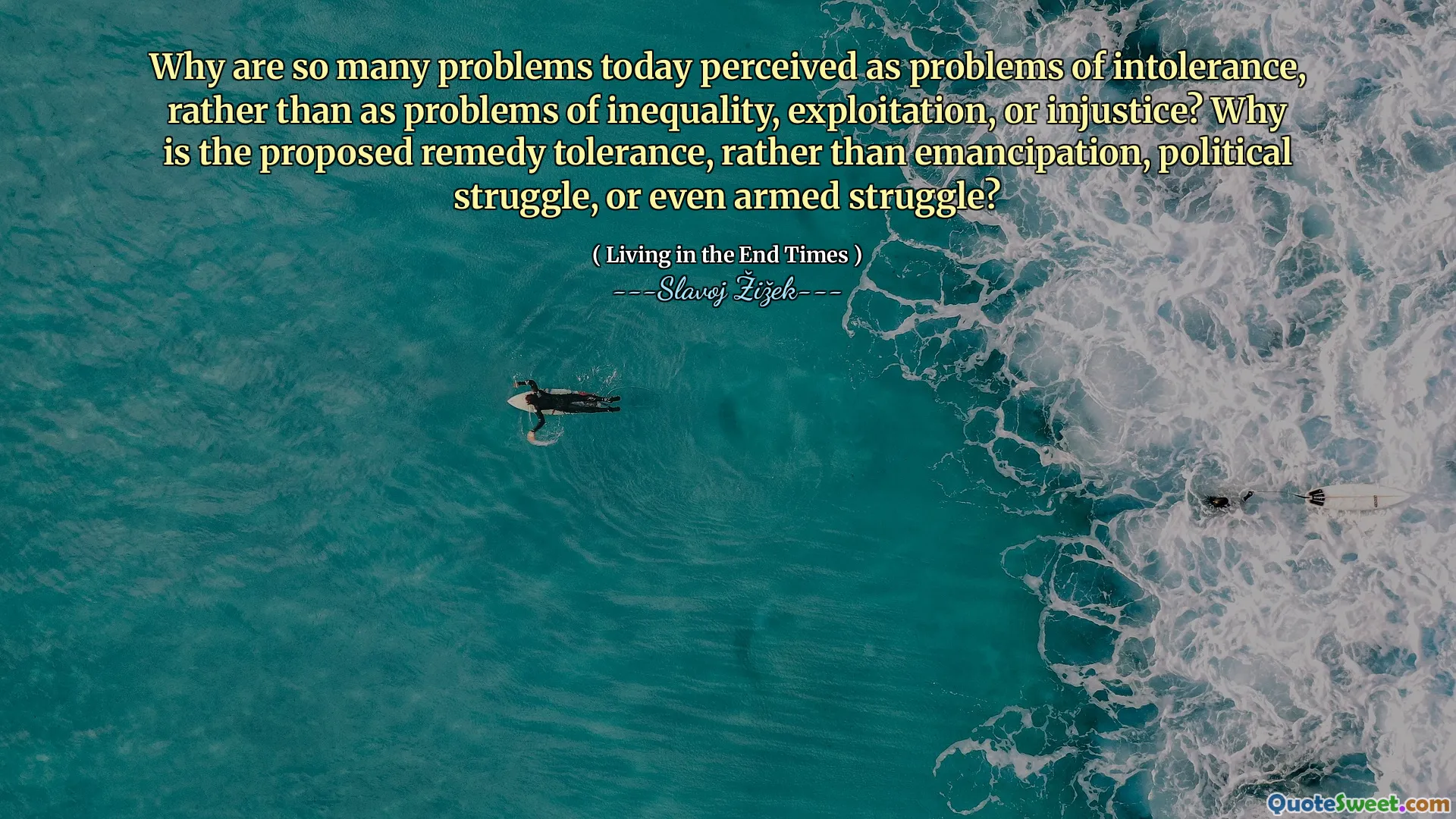
Why are so many problems today perceived as problems of intolerance, rather than as problems of inequality, exploitation, or injustice? Why is the proposed remedy tolerance, rather than emancipation, political struggle, or even armed struggle?
This quote prompts a critical examination of contemporary societal priorities and the framing of social issues. It questions the common tendency to address fundamental inequalities and injustices through mere tolerance rather than actively confronting and dismantling systemic structures of oppression. The emphasis on tolerance as a solution often suggests an attempt to normalize or accept existing disparities, perhaps as a way to maintain social order, rather than strive for true emancipation and systemic change.
The distinction between tolerance and emancipation is profound. Tolerance can be seen as a passive acceptance that may reinforce dominance by limiting conflict but ultimately leaves inequalities unchallenged. Emancipation, on the other hand, invokes a proactive pursuit of freedom from oppression, demanding political struggle, revolutionary movements, or even armed resistance when necessary. The reliance on tolerance might reflect a societal aversion to conflict or upheaval, favoring superficial harmony over genuine equality.
Moreover, this focus raises questions about political agency—do societies prefer tolerance because it is easier and less disruptive? Or do these choices serve specific interests that benefit the dominant groups? By framing problems primarily as intolerance, there's a risk of misdiagnosing deeper issues, such as economic exploitation and structural injustice, which require more than simply fostering mutual respect.
Ultimately, this quote encourages us to consider whether adopting a confrontational approach to injustice might be necessary for substantial change, or whether societies comfortably settle for tolerating disparities to avoid discomfort or chaos. It challenges us to think beyond surface-level solutions and to question whether meaningful social progress is hindered by a preference for tolerance over genuine liberation.






